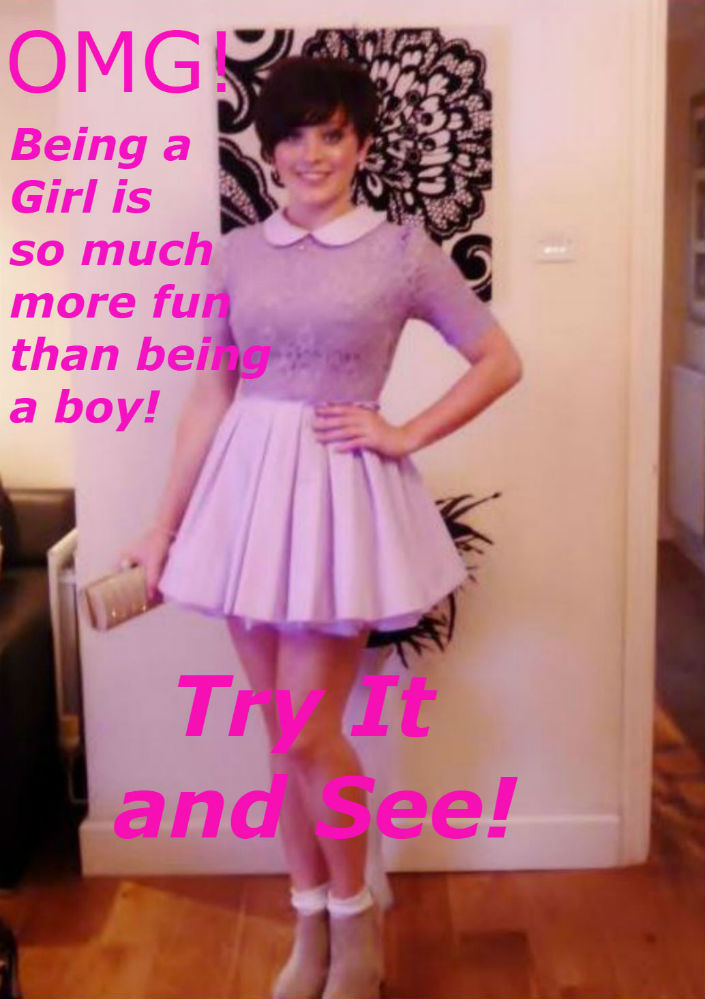In today's diverse media landscape, the term "BBC and Sissies" has emerged as a subject of intrigue and debate. This phrase combines two distinct concepts—the British Broadcasting Corporation (BBC), a globally renowned media organization, and "sissies," a term often used to describe individuals who embrace femininity in non-traditional ways. Understanding this intersection is crucial for exploring the evolving dynamics of media representation and societal norms.
The BBC, as a leading global media entity, plays a pivotal role in shaping cultural narratives. Meanwhile, the concept of "sissies" challenges traditional gender roles, sparking conversations about identity and expression. Together, these elements create a fascinating topic that warrants deeper exploration.
This article delves into the relationship between the BBC and the representation of sissies, examining how media influences perceptions and fosters inclusivity. By understanding this dynamic, we can gain valuable insights into the broader societal shifts occurring in the modern era.
Read also:Great Lakes Holistics A Comprehensive Guide To Holistic Health And Wellness
Table of Contents
- Introduction
- Overview of BBC
- Understanding Sissies
- Historical Perspective on BBC and Sissies
- Media Representation of Sissies on BBC
- Cultural Impact of BBC's Coverage
- Audience Perception and Reception
- Challenges in Representation
- Future Direction for BBC
- Conclusion
Overview of BBC
The British Broadcasting Corporation (BBC) is one of the world's most respected media organizations. Established in 1922, it has grown into a global powerhouse, offering news, entertainment, and educational content across multiple platforms. With its commitment to impartiality and quality, the BBC has become a trusted source for millions of viewers worldwide.
Core Values of BBC
The BBC operates under a set of core values that guide its content creation and broadcasting practices. These values include:
- Impartiality: Ensuring balanced and fair reporting.
- Accuracy: Providing reliable and factual information.
- Inclusivity: Representing diverse voices and perspectives.
Understanding Sissies
The term "sissies" refers to individuals who express femininity in ways that challenge traditional gender norms. This can include clothing, behavior, or self-identification that deviates from societal expectations. Sissies play a vital role in expanding the conversation around gender fluidity and identity.
Evolution of the Term
Originally used as a derogatory label, the term "sissies" has been reclaimed by many as a badge of pride. This shift reflects a broader movement toward embracing diverse expressions of gender and identity. By redefining the term, individuals have empowered themselves and others to explore their authentic selves.
Historical Perspective on BBC and Sissies
The intersection of BBC and sissies can be traced back to the organization's evolving approach to gender representation. Over the years, the BBC has gradually expanded its coverage to include diverse voices and perspectives, reflecting changing societal attitudes.
Key Milestones
- 1970s: Early discussions on gender roles in media.
- 1990s: Increased focus on LGBTQ+ representation.
- 2010s: Comprehensive coverage of gender fluidity and non-binary identities.
Media Representation of Sissies on BBC
The BBC has made significant strides in representing sissies and other non-traditional gender identities. Through documentaries, interviews, and fictional programming, the organization has provided a platform for these voices to be heard.
Read also:Captens Auto Sale Your Ultimate Guide To Reliable And Affordable Vehicles
Notable Programs
- "Gender Revolution": A documentary exploring the complexities of gender identity.
- "Queer as Folk": A groundbreaking series addressing LGBTQ+ issues.
- "The Sissy Chronicles": A fictional series highlighting the lives of sissies.
Cultural Impact of BBC's Coverage
The BBC's coverage of sissies has had a profound cultural impact, influencing public perceptions and fostering greater acceptance of diverse identities. By presenting nuanced portrayals, the organization has contributed to a more inclusive society.
Changing Perceptions
Through its programming, the BBC has challenged stereotypes and encouraged audiences to rethink their assumptions about gender and identity. This cultural shift is essential for promoting equality and understanding.
Audience Perception and Reception
Audience reception of BBC's coverage of sissies has been mixed, reflecting the broader societal divide on gender issues. While many viewers appreciate the organization's efforts to promote inclusivity, others remain skeptical or resistant to change.
Feedback from Viewers
- Positive feedback: Praise for authentic and diverse representation.
- Critical feedback: Concerns about political correctness and bias.
Challenges in Representation
Despite its efforts, the BBC faces challenges in representing sissies and other marginalized groups. These challenges include navigating cultural sensitivities, addressing bias, and balancing diverse perspectives.
Solutions and Strategies
- Engaging with communities to ensure authentic representation.
- Training staff on inclusivity and diversity.
- Encouraging feedback and dialogue with audiences.
Future Direction for BBC
Looking ahead, the BBC has the opportunity to further its commitment to inclusivity and diversity. By continuing to explore complex topics like gender identity, the organization can remain at the forefront of media innovation and social progress.
Innovative Approaches
- Expanding digital platforms for diverse content.
- Collaborating with activists and experts in the field.
- Investing in research and development for new programming.
Conclusion
The intersection of BBC and sissies represents a fascinating chapter in the evolution of media representation and societal norms. By exploring this topic, we gain valuable insights into the power of media to shape perceptions and foster inclusivity. As the BBC continues to push boundaries, it has the potential to inspire positive change and promote understanding across diverse communities.
We invite you to engage with this conversation by leaving a comment or sharing your thoughts on social media. Together, we can contribute to a more inclusive and informed society. For more articles on related topics, explore our website and stay updated on the latest developments in media and culture.


